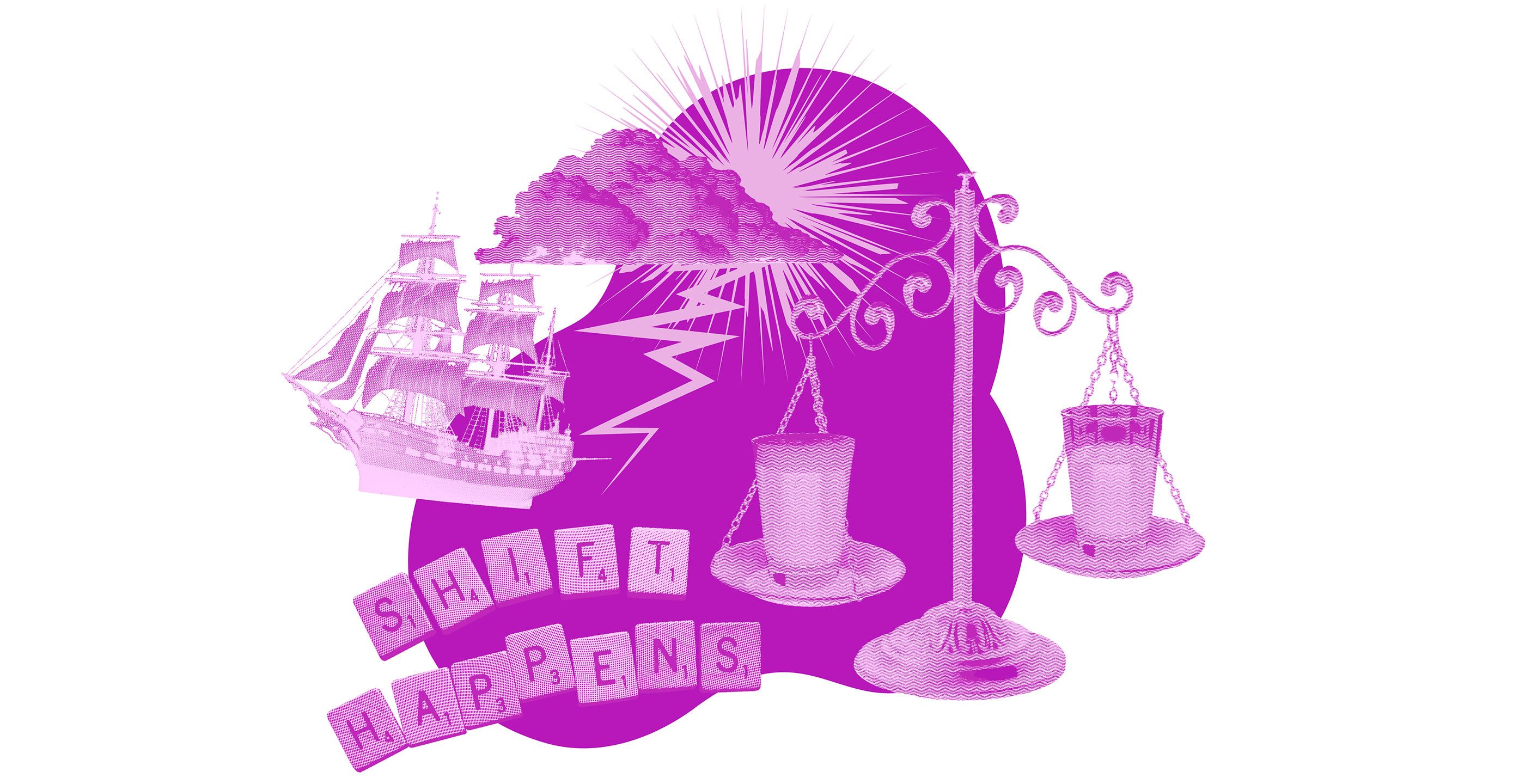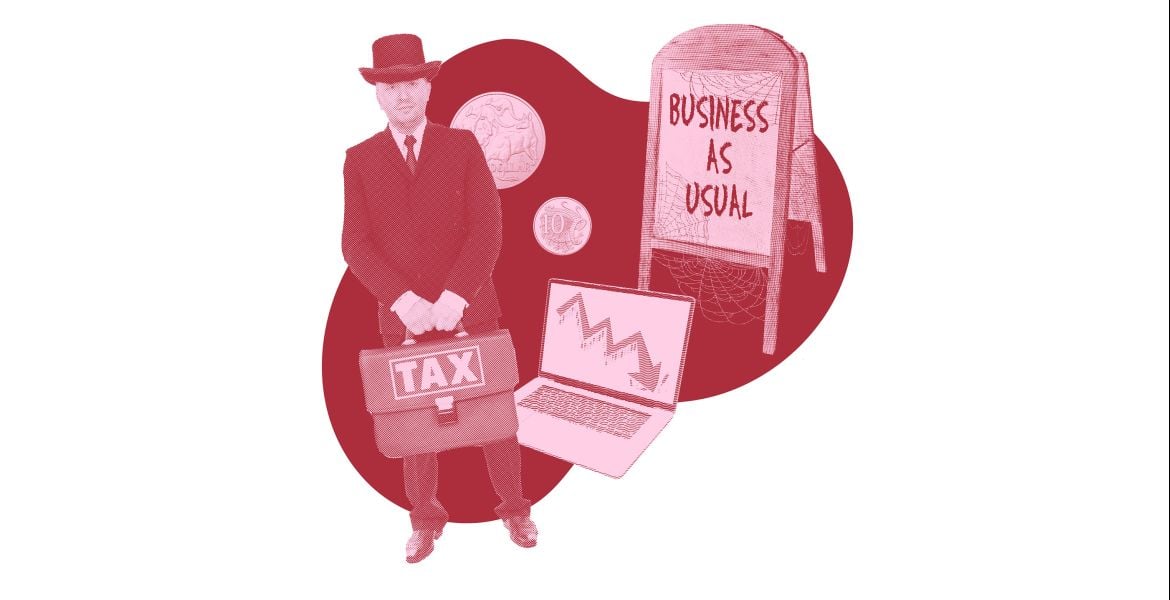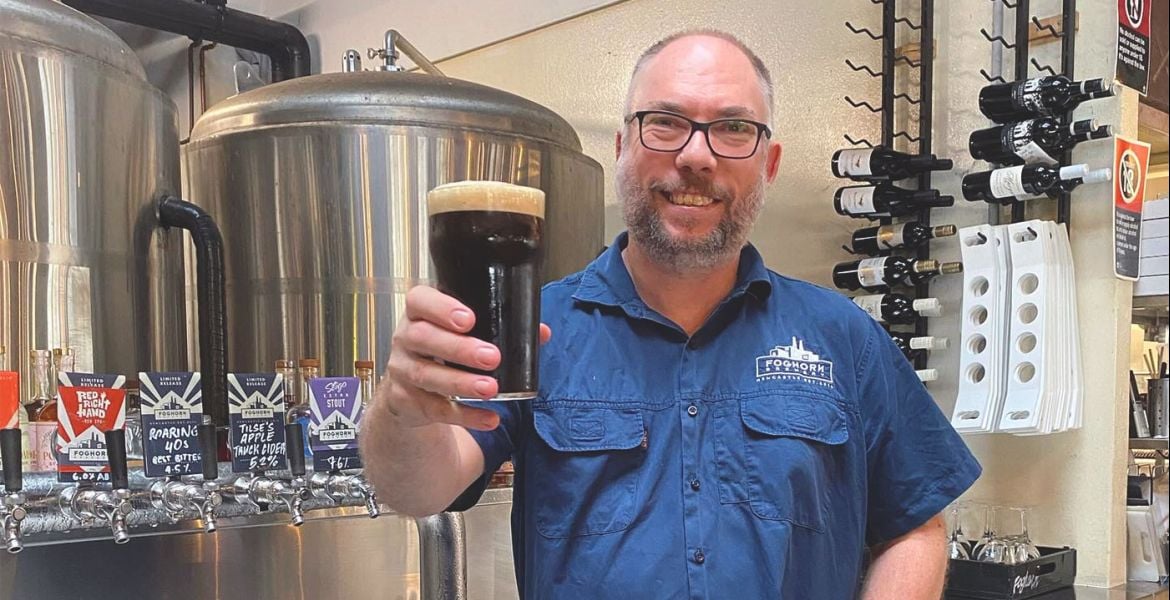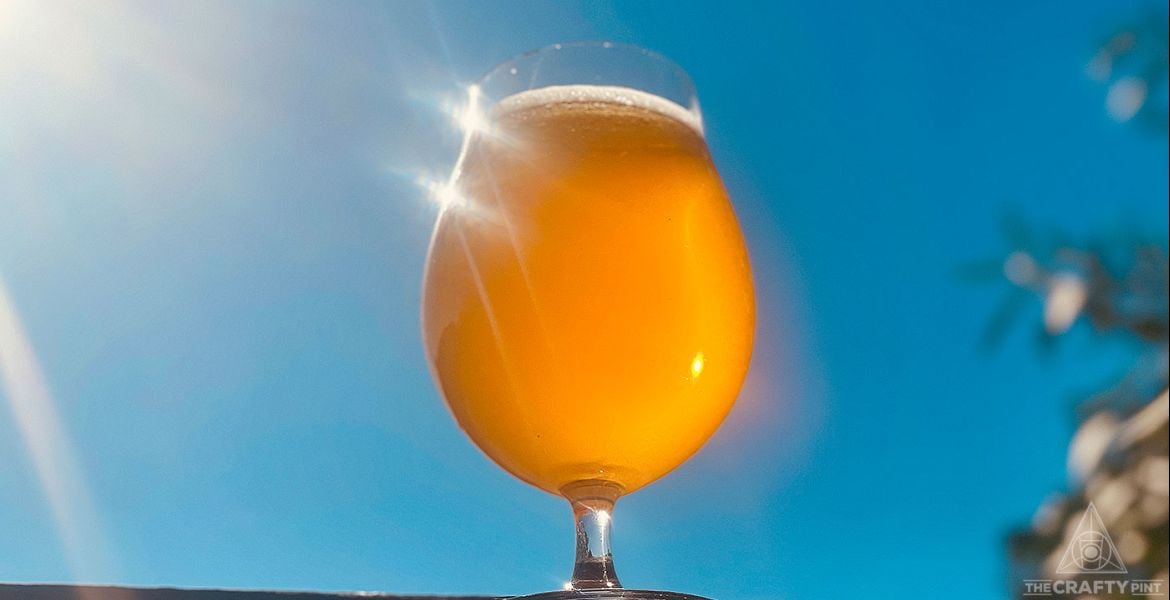Depending on who you speak to, the current outlook for craft beer in Australia is either “doom, death and destruction” or “a time of opportunity” with brighter days ahead.
In many cases, it’s a bit of column a, a bit of column b – with the weighting applied to each fluctuating week by week, sales report by sales report, or maybe just dependent on the balance of chemicals in your brain on a particular day.
What is certain, however, is that the first six months of the year have been as brutal a period for the beer community as we’ve experienced in the 14 years of The Crafty Pint – and beyond. One brewery owner who’s been in the game far longer says they’ve never known anything like it, describing the GFC as a barely noticeable blip compared to the experience of recent years.
The steady stream – or should that be torrent? – of closures, sales and VAs in 2024, since Wayward started the ball rolling on January 2, puts last year’s already bleak showing in the shade. So, with interest rates now looking more likely to rise again before they start to fall and many consumers’ disposable income already on life support, what does the future hold?
Crystal ball-gazing is an inherently risky / pointless / thankless task at any time, let alone now. Over the years, we’ve written about the ever-changing beer landscape in Australia, how it has steadily become more layered and complex as the craft / indie sector has risen and the major players have responded. For all that, you’ve generally been able to create a snapshot of how things are in a particular moment – but can you say that about then state of play on July 1, 2024?
Not only are businesses opening, closing, up for sale, or going in and out of administration, but the details surrounding many of these moves hint at things being, for want of a better word, chaotic.
While there have been mergers and acquisitions between smaller brewing companies in the past, typically if you heard the words “brewery sale” you’d assume it was a multinational snapping up one of the most successful indies. Now, we’ve got a flurry of indies buying up indies as the multinationals continue to shed some of their craft operations: CUB/Asahi closed the Matilda Bay brewpub in Healesville in May; Lion/Kirin announced they were to close Malt Shovel last month (at the same time as its founder, Chuck Hahn, was welcoming guests to his latest venture, of course).
Even the nature of some of these indie-on-indie acquisitions adds to the feeling of chaos due to the speed and, in some cases, unplanned manner in which they’ve happened: Rocky Ridge’s purchase of Thunder Road Brewing; Hiker bringing forward their plans for a second venue by several years after the former Black Hops Brisbane site became available; or the similar story of Great Ocean Road Brewing and Sou’West on the Surf Coast.
Mighty Craft, meanwhile, is down to its bare bones, following two years in which the ASX-listed “craft drinks accelerator” has been selling off assets like they’ve been soaked in accelerants. Earlier this year, Slipstream Brewing’s founders announced they’d bought back their shares; in June, Shawn Sherlock took full control of FogHorn Brewery.
Their retreat has enabled the rise of a new player, with drinks industry veteran and former CUB boss Peter “Flip” Filipovic fronting a group of publicans and other industry investors. Late last year, they bought Jetty Road from Mighty Craft and, in April this year, the consortium added Mismatch and 78 Degrees for $7.2 million – a considerable drop from the $47 million in cash and shares for which Mighty Craft acquired the Adelaide Hills Group in 2021.
As a result, Mighty Craft’s sole focus in beer appears to be on merging with the rest of Better Beer, in which the business shares ownership with Nick Cogger and comedy group The Inspired Unemployed.
If the arrival of Flip’s consortium brings with it echoes of the Catchment Brewing Group’s acquisition of Ballistic Beer Co and Fortitude / Noisy Minor in 2023 and 2022 respectively, then where exactly does the arrival of Powder Monkey from the UK sit? The relatively young brewing-plus-hospo operation embarked on an Aussie venture with Southern Highlands Brewing Co and has since added Willie The Boatman to the portfolio.

Taken together, craft beer today certainly paints a complex picture. It’s also far from a complete one, given the discussions around potential consolidations, mergers, sales and exits we hear on a weekly basis. With little good news expected any time soon on a macro level – be that government support, changes to the punitive excise tax structure, or a fresh investigation into market access – one has to assume it’s the way things will remain for a while yet.
Unless you’ve got deep pockets, wealthy backers, little in the way of debt or repayments, blind faith, or a combination of those elements, there’s a good chance you’ve trimmed everything you can from the business, unearthed all efficiencies, and are planning to hold tight the best you can until you’re confident any light at the end of the tunnel isn’t, in fact, just another train heading your way.
However, such a view ignores the fact there are businesses out there who are going well. They might be in the minority, and most likely operating at the smaller end of the industry – more localised; sitting under the $350,000 per annum excise threshold perhaps; based around a brewpub or taproom with limited external distribution – rather than having ventured into the Valley of Death (the space between being a small brewery / brewpub and a large-scale brand), but they are out there, even if some choose to remain quiet out of respect for peers who are up against it.
There are geographical imbalances adding to the complexity too. Moves by the likes of Rocky Ridge and Beerfarm, plus noises emanating from other WA operations, can make it seem like there’s something of a bubble in the west, impervious, or at least more resilient, to many of the issues elsewhere. Yet, while there’s a broad consensus that trade in Victoria is particularly slow, we hear more positive reports from elsewhere on the eastern seaboard. Everything is relative, of course, with the years of rapid growth at an end.

Now, no matter how badly a child has been performing, teachers do like to search for positives when compiling mid-year reports: to mix the carrot with the stick. So, where are the carrots for the craft beer industry?
Certainly, even though humanity’s lemming-like insistence on seeking out misery ensures we see a spike in traffic every time there is a VA or closure, there remains a desire for good news. Beerfarm and Nail’s acquisition of Feral recently became our most-liked social post of all time; the news that FogHorn founder Shawn Sherlock had taken full ownership of the Newcastle brewpub would sit in the upper echelons too; and we’re sure more such announcements lie ahead, amid the closures and administrations, of course.
Away from the machinations of the market and the changes in ownership, it pays to take a step back to consider the wider picture too. While it’s of little comfort to those still locked in a daily struggle – let alone those whose dream has already been crushed – we’d argue the ongoing hardships facing the industry do come with some silver linings.
After years of easy wins, when you could seemingly release anything into the market and be confident it would sell, the downturn hasn’t just forced businesses to streamline but also to refocus.
I’d imagine there have been plenty of moments during crisis / future planning sessions when business owners or their staff have looked at some of the beers they’ve released, or some of the wilder ambitions they had, and gone: “What the fuck were we thinking?”
While there’s a time and place for everything in beer, there was a time and place when it felt like every brewery out there was trying to be everything in beer. Now it feels like there’s been a refocusing, a remembering of who you are, of why you got into beer, of the styles of beer you actually care about, of the role you want to play.
Within this, we’ve heard time and again from people about a heightened focus on their local community, a desire to win over drinkers they’ve not yet reached within their hometown or neighbouring suburbs. Such an approach might represent a longer, slower way to build an audience than hitting up markets further afield eager for anything new, as had been the case, but surely it’s also a way to build a more loyal audience over time too.
Of course, the fact there are enough businesses – not just brewers but indie venues and retailers – in enough parts of the country for this to even be a possibility is cause for optimism too. It can be easy to forget when you’re caught up in the maelstrom of running a small business in a struggling industry during an economic downturn, but just take a look around – then cast your mind back ten years or more.

When we launched The Crafty Pint, the only breweries operating within a dozen kilometres of Melbourne’s CBD were Mountain Goat, 3 Ravens, and the James Squire Brewhouse at the Portland Hotel. The only brewery operating in Sydney’s Inner West at the time was Malt Shovel. Burleigh Brewing was the sole operator on the Gold Coast. There was only one bar in the whole of Brisbane worthy of the “craft beer bar” moniker. There had been no Good Beer Week, GABS, Froth Town, Beer & BBQ, Bendigo On The Hop, or Indies awards.
Being reminded how far things have come might be cold comfort to those who’ve fallen foul of five years of cascading challenges, but it doesn’t change a reality in which there are now breweries dotting the long drive from Perth to Broome, in Alice Springs, in the northern Flinders Ranges, and the list goes on.
Another notable change, at least for those of us who operate in as well as observe the media, is the tone of mainstream coverage. For years, it seemed there was only a handful of topics deemed worthy of coverage when it came to craft beer; every few months, the features editor would spin the tombola to see which was up next: Why is craft beer so expensive? This brewer has just made a beer with [enter disgusting item]. Oh my god… Women brew beer!
Now, however, it’s more commonplace to find craft beer treated with more respect and honesty. Over the past year, there have been plenty of articles, as well as radio and TV segments, providing commentary on the independent sector and beer as a whole that have moved past viewing it as a fad or oddity to instead cover it as they might any other established part of society. Sure, it’s taken the collapse of many businesses and warnings of existential threats to the wider hospitality community for this to happen, but silver linings and all that.

It’s also worth remembering that beer and hospitality aren’t alone in their struggles right now.
There’s no denying the space in which we operate has been dealt a quite stupendous series of body blows that predate even the lockdown years. Indeed, to survive that era only to enter one defined by rising interest rates, skyrocketing costs, CO2 shortages, delayed tax bills, and a cost-of-living crisis – all while the country’s two largest brewing companies, two major retailers, and two biggest pubcos are locking indies out of the vast majority of the market – and still be in the shape it is today feels like quite an achievement.
Yet part of the reason the industry’s woes have been so acute is because these unique challenges have come during a global downturn. While now isn’t the best time to be referencing politics in the USA, given the situation there makes even our tepid puppet show look like Plato’s Republic, I keep coming back to the phrase uttered by one of Bill Clinton’s senior advisors in the 1990s: “It’s the economy, stupid.”
If the wider economic landscape wasn’t so flat, if the outlook was rather less bleak, and if people were still going out more (or at least spending like they used to when out), and buying what they want rather than what they think they can afford, then we wouldn’t be writing such an article.
It brings to mind a conversation with one brewery owner who had made swingeing cuts to their business early in 2023. They’d done so on the advice of their parents who had run businesses during past recessions. They could see the writing on the wall, knew that while economies slumped they also came back, and that the best option was to move decisively and early to ensure both survival and the existence of a fighting fund to put the business in a stronger position once the good times returned.
Of course, that’s easier said than done in a small business, in which colleagues and employees are often also friends, but the underlying point remains: it’s the economy, stupid, and once that’s in better shape it’s easier to deal with other hurdles.
Furthermore, looking ahead to those days, one has to assume that the businesses that have survived will be stronger for it. They might be selling less beer than they were, be smaller and more streamlined, have less in the bank than they’d have liked, and rather more in the way of grey hairs and wrinkles, but they’ll have been forced to become the sharpest version of themselves in order to get that far.
I’d like to think such a message can be applied to the industry as a whole too. In the absence of seemingly easy wins, there’s a need to tighten the ship. Less firing of $15 novelty cans into specialist retailers around the land to satisfy the noisy nought-point-something percent of online beer geeks, more building of a local, loyal customer base – a more grass-roots approach that should benefit both individual businesses and the wider beer community as a whole.
Hopefully, the camaraderie that has long been central to beer and the envy of similar industries lives on, as it’s something that helps sustain people through hard times. And, talking of people, hopefully those talented staff who have found themselves out of work due to cutbacks and closures can find new roles within the industry too. For years, there has been talk of a skills shortage so, at a time when there are more training opportunities and routes into the industry than before, it would be bitter irony if some of the talent that’s been nurtured was lost.

Reports typically end with a conclusion. So, after all the above, what’s ours?
If you ask my wife about the fortunes of The Crafty Pint, she’ll tell you it’s “doom, death and destruction” or “brighter days ahead” depending on the day of the week. And maybe both are true: it is tough out there, but the industry is tough enough to survive. (Cue Billy Ocean…)
Fifteen years ago, accepted wisdom was that craft beer was a fad that would fail as it had done before, yet here we are, with more than 600 brewing companies in all parts of the country and quality, for the most part, at an all-time high.
Does that diminish the damage of the past six months? No. Does it make surviving the next six months of 2024 any easier? Probably not. But does it add a little perspective? We hope so.
Craft beer remains in its infancy, a tiny blip in beer’s millennia-long history. Since Phil Sexton and friends poured their first English-inspired ales at the Sail & Anchor in Freo in the early 80s, it’s been in a constant state of evolution and has been forced to reinvent itself more than once already in the 2020s.
And maybe that’s the way it will be for some time yet. As our graphic designer Jessie Jungalwalla put it in the collage at the top of the article, shift happens. Up, down, sideways and, fingers crossed, up again.
2024 Semester One Report Card
We're sure there will be some we've missed, but here is a rundown of significant closures, sales and administrations within the craft beer world between January 1 and June 30, 2024.
- January 2: Wayward Brewing go into VA, emerging with the same owner later in the month
- January 10: Wild Life announce the closure of their Shepparton-based operation
- January 14: Sow & Piglets, a brewery and guesthouse on the Great Ocean Road, for sale
- January 30: Thirsty Crow, an award-winning brewery in Wagga Wagga, is put on the market
- February 2: Brews News announce they are to cease publishing
- February 3: Yard Kings in Morriset, NSW, put up for sale
- February 8: Ballistic's owners close the Airlie Beach venue
- February 12: Hawkers enter voluntary administration; exit with owners still in charge
- February 12: Big Shed go into voluntary administration; emerge with founders still in charge
- February 28: Golden West go into voluntary administration. Their venue and equipment is later bought by FOUND.
- March 13: Deeds go into voluntary administration. In May, the business announces it will close
- March 21: Akasha enter voluntary administration; existing owners bring the business back in May
- March 25: Grand Ridge go into voluntary administration; winding up process begins in May
- March 28: Black Hops go into voluntary administration; later bought by new consortium, including several existing investors
- April 3: Mighty Craft sells Mismatch to a group of publican
- April 5: Good Drinks announce plans to sell Atomic
- April 15: Northern Beaches-based Nomad put up for sale
- April 19: Brewicolo announce closure of their Surf Coast brewery
- May 2: Asahi announce plans to close the Matilda Bay brewpub
- May 13: Beer distributor Lotus Beer Collective set to cease operations
- May 15: Sou'West Brewing closes suddenly; venue and equipment later acquired by Great Ocean Road Brewing
- May 19: Temple Brewing closes
- May 20: Clancy's Dunsborough venue acquired by Bailey Brewing
- May 21: Beerfarm and Nail buy Feral Brewing's site, equipment, brand and beers
- May 21: East Bendigo Brewing Co announce imminent closure
- May 31: Thunder Road bought by Rocky Ridge
- June 6: Lion announce plans to close the Malt Shovel brewery
- June 12: Mental health awareness beer pack supplier Craft Beer Coopery announces it's to close
- June 13: Black Brewing Co goes into voluntary administration
- June 14: Hiker takes over Black Hops Brisbane
- June 15: Range Abbotsford closes
- June 19: South West WA brewery Full Circle sold by founders
- June 20: Beaten Track Brewery in Kalgoorlie put up for sale
- June 30: Alchemy Brewing in Brunswick closes

















